There are few things I want to do less than give this tribute to my father. The unflinching approach to reality he imparted had left me noticing his aging, and I was preparing to adapt, over time…. But my father never gave someone a challenge he thought them incapable of meeting.
All the wonderful things being shared about my father obviously come as no surprise to me, and I had so hoped to spend the next few years, hearing those things with him, but knowing how uncomfortable it would have made him to hear so much praise, as his own ability to act diminished, I have to appreciate that, as hard as this is on the rest of us, it was an ending with which he would have been satisfied.
I had hoped to spend the next years supporting him, as he always has supported me- my father has been at anything I asked him to be at, and volunteered for things I didn’t intend to subject him to… And The outpouring of remembrances from my friends, has reminded me, of how important it was to him, to know the people important to me. I was touched by the photos my parents saved, not only of me, but of Niki, Jeremy, Erica, Jason, Abe, and so many others. Many of my students and colleagues had stories, as they’ve driven out to Cal Poly Pomona for multiple events, marched with my students for a sustainable future, and for the rights of immigrants, and were happy to attend CPP sponsored Dodger games. Despite his years of public speaking at high-stakes events, family members have reminded me of how the event for which he showed some concern for his performance, was when called upon to officiate my wedding. He saw that a high stakes event. I think Navid would have stayed even with a minor error…. And the depth of his loss, is a testament to my father’s ability to welcome people into his family- completely. When you’re in, you’re in… That’s the for better or worse. And with my father, it was almost all better.
My father didn’t know how to be unproductive, and he will have posthumous work published (not a hint to his co-authors, or a comment on the reviewers- #2 I’m looking at you…), but the idea of slowing down, of doing less, of relaxing, was not at all appealing to him. Nor had it ever been.
Even now as he prepared to “retire” for the fourth time(?), he was finally finding the time to research our family history, finding a master’s thesis on one relative, connecting with ethnomusicologists while researching a family melody… he was organizing photos and records, and of course, gardening.
I’m not sure I ever remember my father reading a novel, though the books he gave me to read, were always meaningful. A Tree Grows in Brooklyn, The Yearling, Black Boy…. Ya know light childhood reading. He never binged anything on Netflix. But he wasn’t quite as out of touch with popular culture as we used to joke. I remember him telling me these films will change how movies are made, when he took me to 2001, and Star Wars.
To vacation with my father was not per se relaxing, but it was always educational. Weren’t there museums to see, history to be learned, culture to be appreciated? I can’t imagine a trip to a beach resort without a sustainability tour. And I have been to an embarrassing number of train museums. From the family albums, apparently my mother married him despite the train museums.
My father had a quintessentially east coast Jewish sense of humor. Political, ironic, dark, but never mean. He had a good chuckle when he learned the Jewish space laser conspiracy centered on high-speed rail, and we certainly have exchanged our share of dark political humor over the years. But he also would go long game on humor, in a way I don’t think most knew…. When my brother was roughly 8- around 1982 (fine I checked the year online), he saw the old chalice comedy skit redone by HBO as a short, and thought it was hysterical, so in typical 8-year-old fashion (and I have an eight-year-old with my brother’s smile), he made a few too many jokes about the chalice, begging my father to re-enact the skit for him. My father, good-naturedly threatened to do that as the toast at my brother’s wedding, if he didn’t stop…. Over the years, once in a while he would bring that up… Fast forward to 2004- Steve and Shirley’s wedding. My father gets up to give a toast, and he opens with the exact same, largely innocuous lines of the skit…. The look on my brother’s face was priceless. Of course, my father proceeded with a lovely toast, And I know only four people there got the joke… but it was epic.
My father did love baseball. Growing up in New York in the 40s and 50s, he and his Uncle Harold’s favorite escape was in the rooting for the underdog Brooklyn Dodgers. And many of you who may have attended games could have mistaken him for teetotal, as he almost never enjoyed a beer at a game. Why? Because once, during a restroom break- he missed a triple play. Fortunately, he stayed in his seat in 1988 for Gibson’s home run, and As a Brooklyn Dodger fan, he saw most of the greats play live, including Jackie Robinson. He also took me to some pretty amazing baseball games, and thanks to his busy travel schedule, I was frequently the lucky recipient of tickets, even when he couldn’t attend. My first Dodger Game went into extra innings, and the Dodgers won on a hit by Steve Garvey. Since we never leave early, we were at the game where the Dodgers hit four home runs in the ninth, though we also suffered through a game where they blew a 13 run lead…. I was at Orel Herscheiser’s first start as a Dodger at Shea with the somewhat traitorous but still beloved Uncle Harold who had defected to Mets fandom…. We’ve seen more than one win by pitchers like Valenzuela, and Kershaw… And I got 18 innings of world series baseball- in one game. No, I did not leave early. And I rode my bike.
Despite his impressive personal achievements, he told me, more than once, that the real influence he had and what he was most proud of, -were the people he had the privilege of working with, educating and developing. He told me, “Not very many people read academic papers, but the influence we have, is in not only the scholars we train, but the many students who don’t become scholars, but go into the world, carrying what we teach them, the messages, values, ideas, and ways of thinking that we impart.” He saw himself fundamentally as an educator, and that approach, allowed him to remain true to himself, his ideals, and his values. Because what he valued most -were people. And being an educator wasn’t a one-way street. He valued what students brought and he integrated it into his thinking and as a result he never stopped growing- challenging his own thinking. That this was the real value of being an educator, the opportunity to expand people’s minds, and in turn, have your own expanded. Recently I had the wonderful privilege of two of my own former students returning to guest lecture for our annual professor for a day campus event. I had them speak about research, about data. And they blew me away. They had this deeply compassionate, humane view of policy, of research, of data. I was shocked at how much of my father’s voice was in their words. When they ended with, and this is what you taught us Dr. Wachs…. It wanted to tell them it wasn’t really me. I was just passing on what I had lived.
One of my friends jokes that when you bring sociology (and my father was undecided between sociology and civil planning) to other disciplines, everyone thinks your brilliant, but one is just asking for people-centered, critically evaluated, long-term planning. And that was effectively the mantra of my life. My father imparted that fundamentally research is about people, and people’s lives. My father lived his life never forgetting that every equation, every budgetary decision, every funding priority, wasn’t a number on the page, it was people’s lives. And those lives were precious, valuable, worthy things. For my father, every person mattered and should be treated with dignity and respect.
And seeing the many wonderful students he taught, and the people they have become, and who my brother is, and who we chose to marry (Shirley and Navid), and who Leia and Ziya are, he will never be gone, and the world is better because he was in it.
I think the many tributes and accolades that continue to pour in would have overwhelmed my father. He was a practical person at his core. But that’s not his legacy. The legacy he leaves is a cadre of people committed to social justice and equity, and human-centered policy. And I am confident that the scholars, practitioners, and activists, he mentored can and will achieve this. And that will be his legacy.
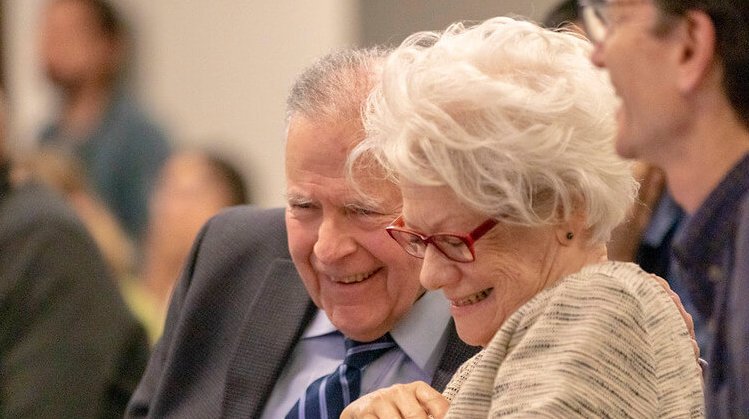

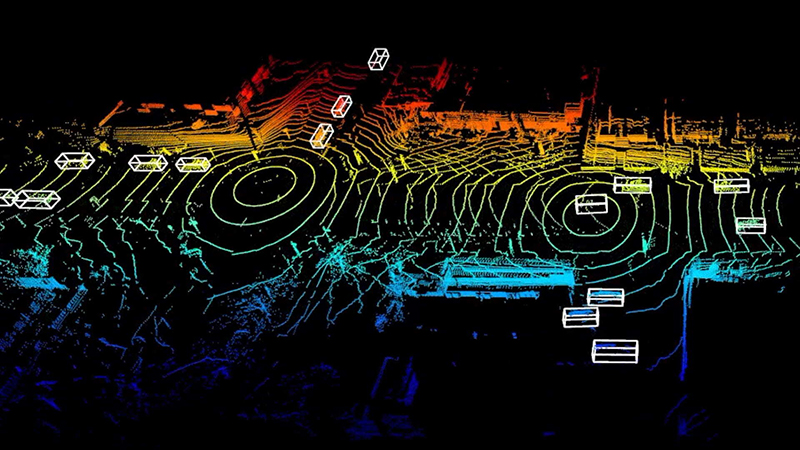



















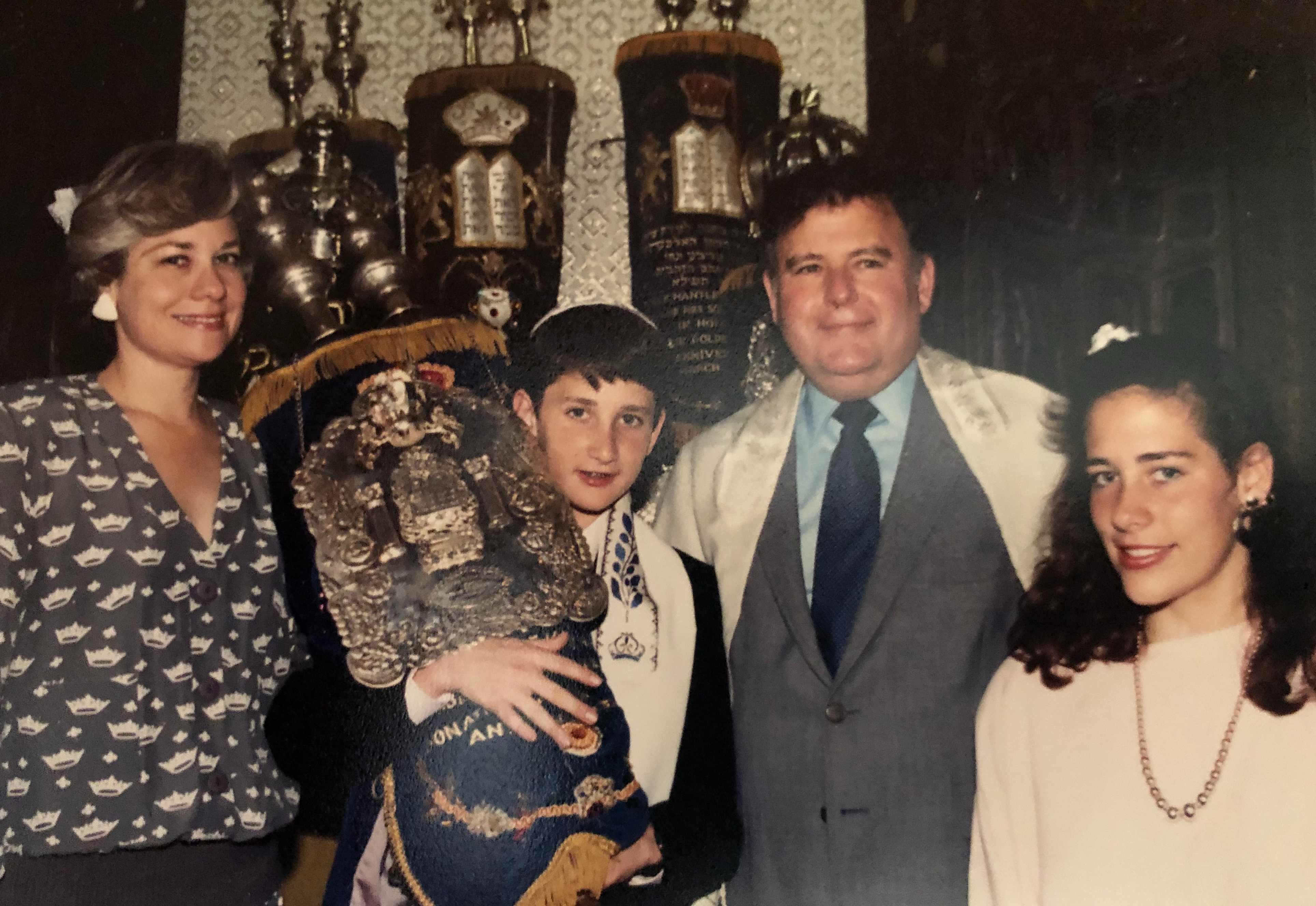





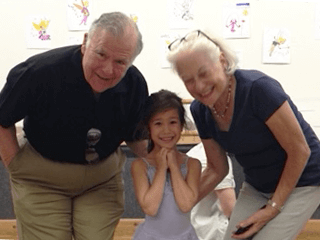
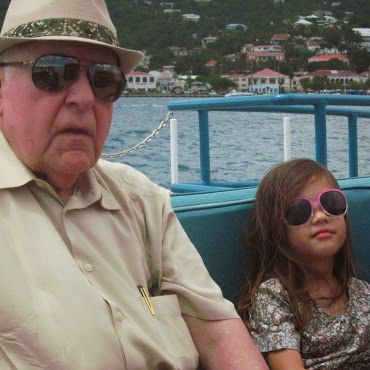
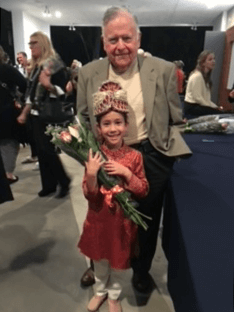
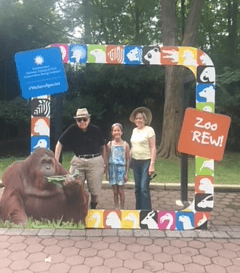

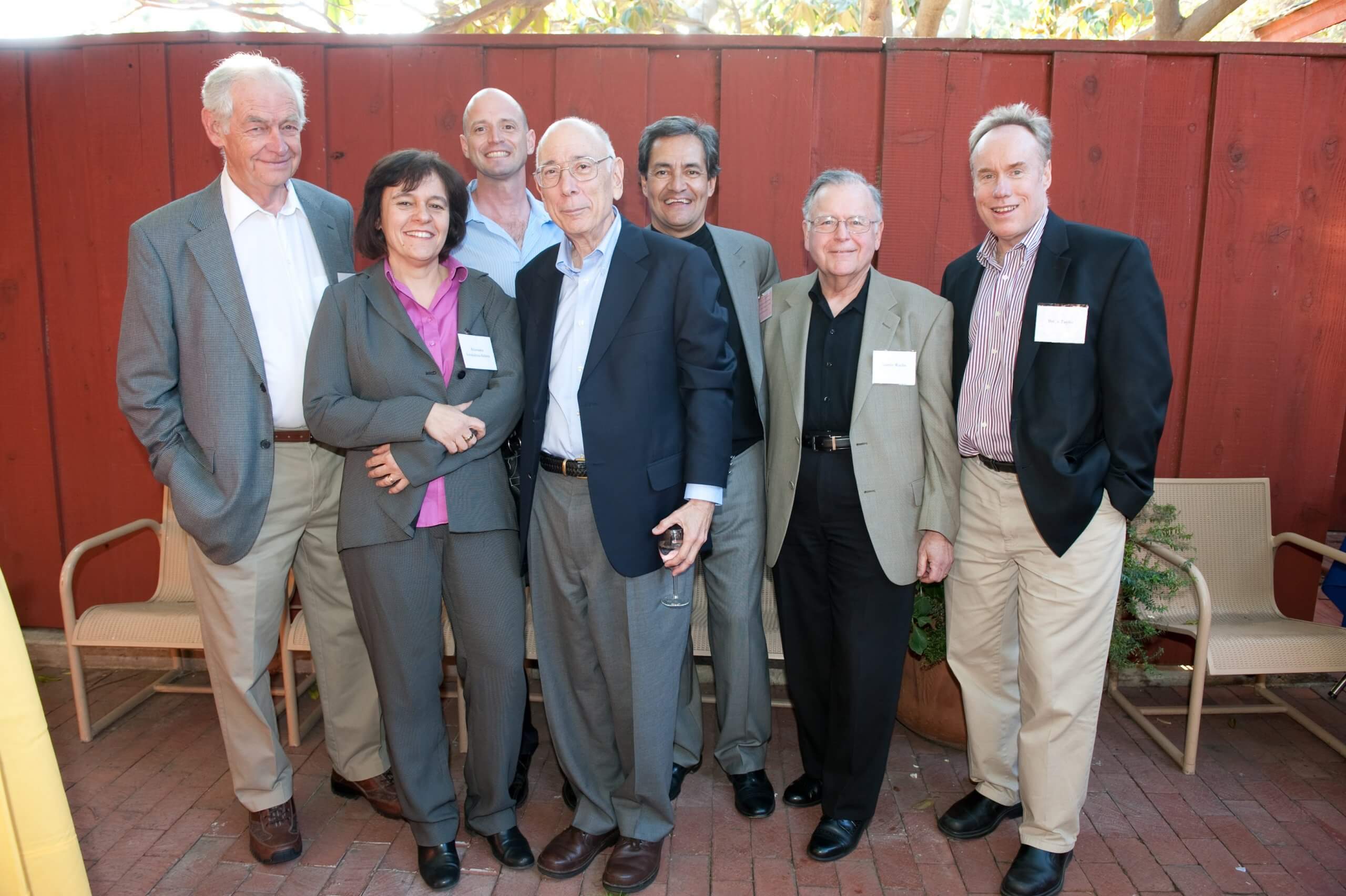
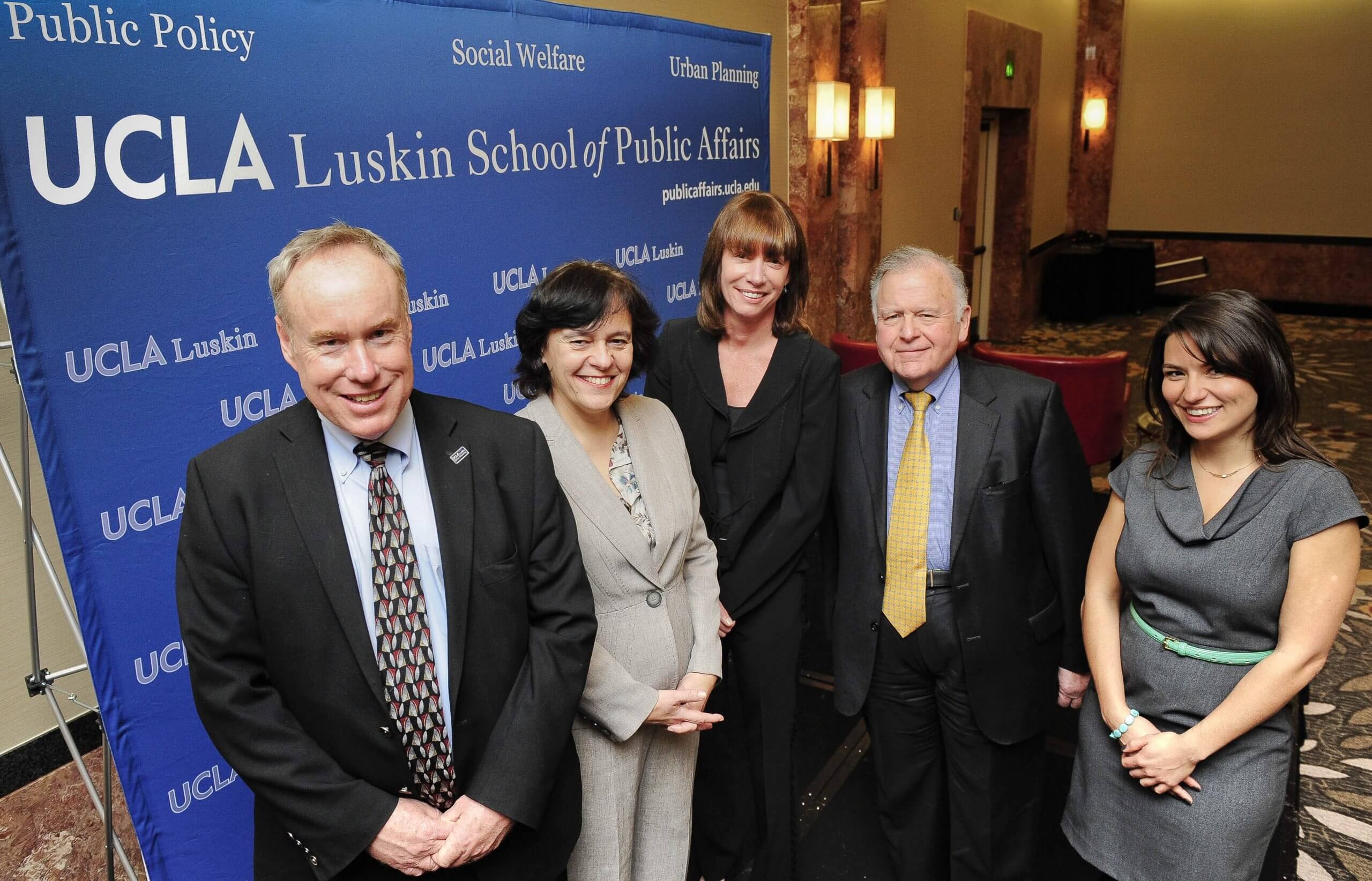

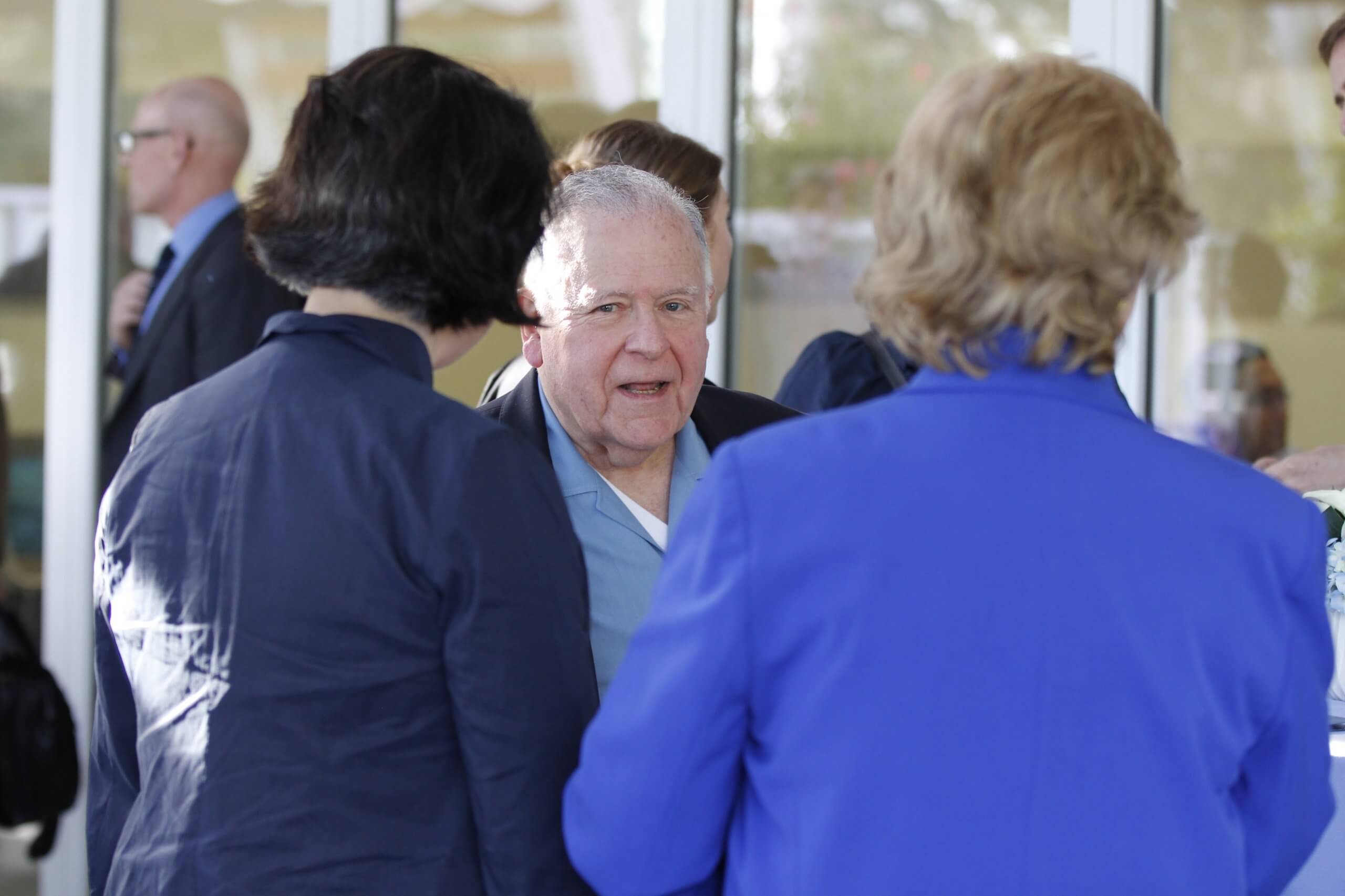
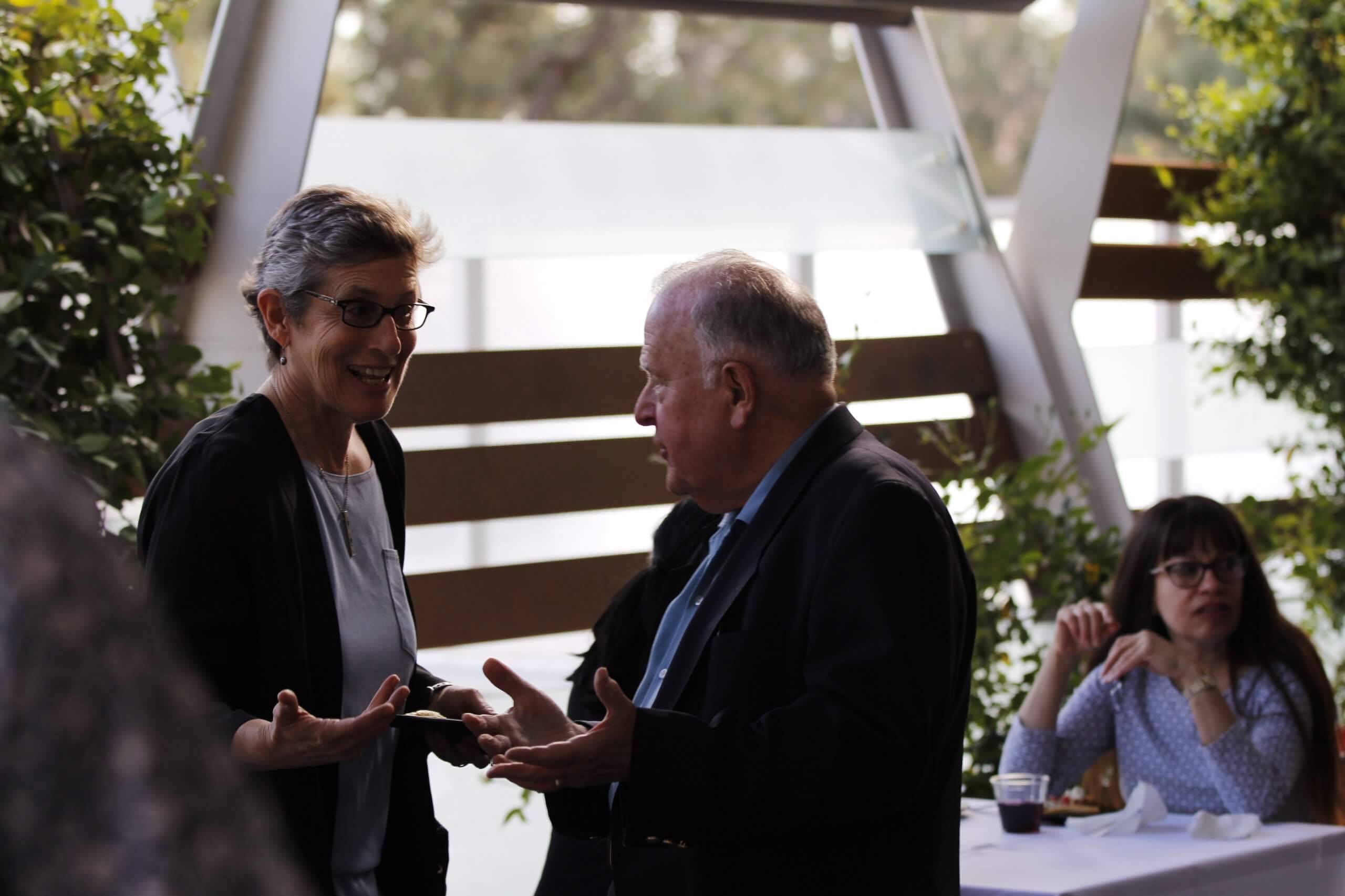
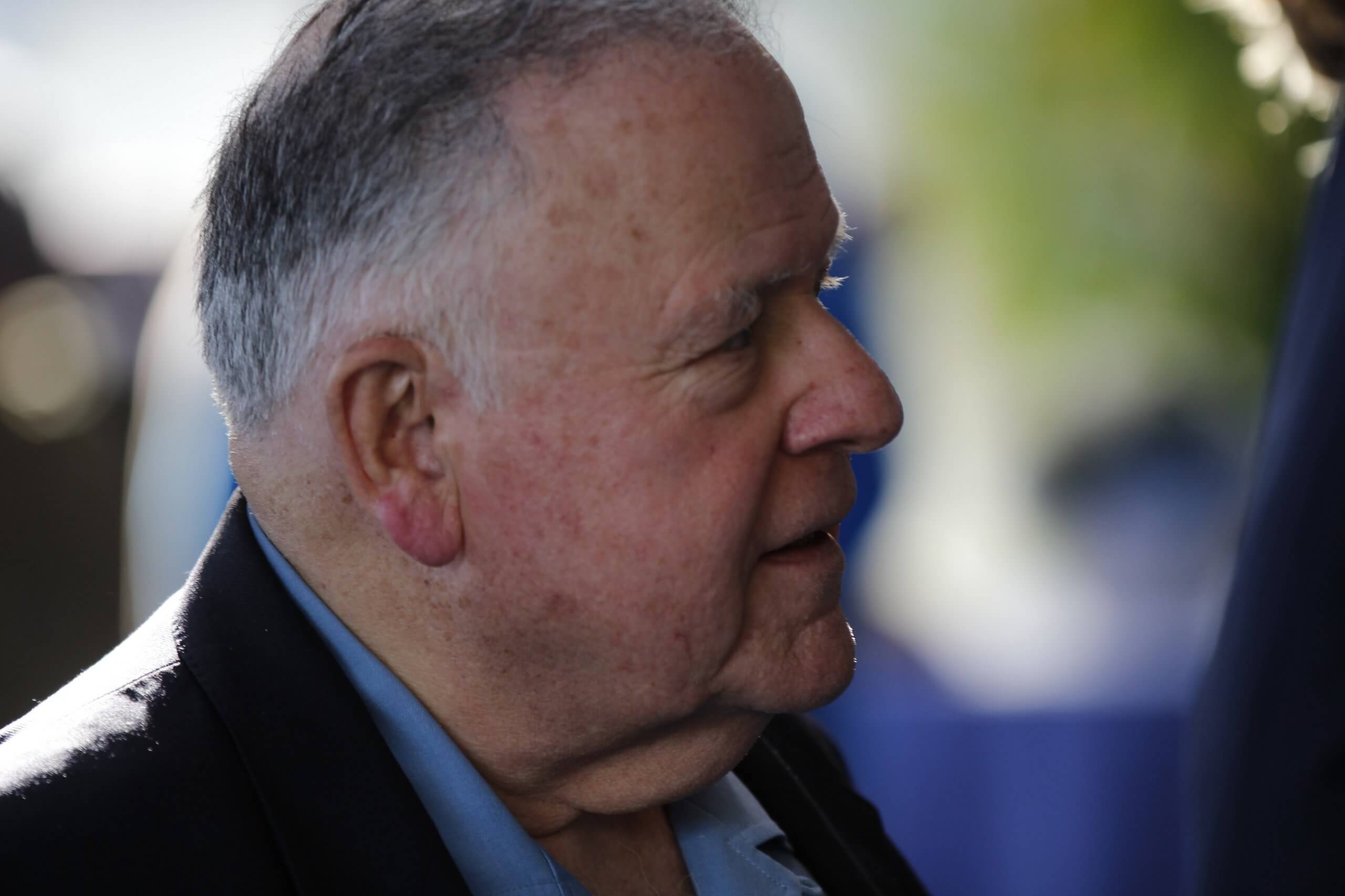
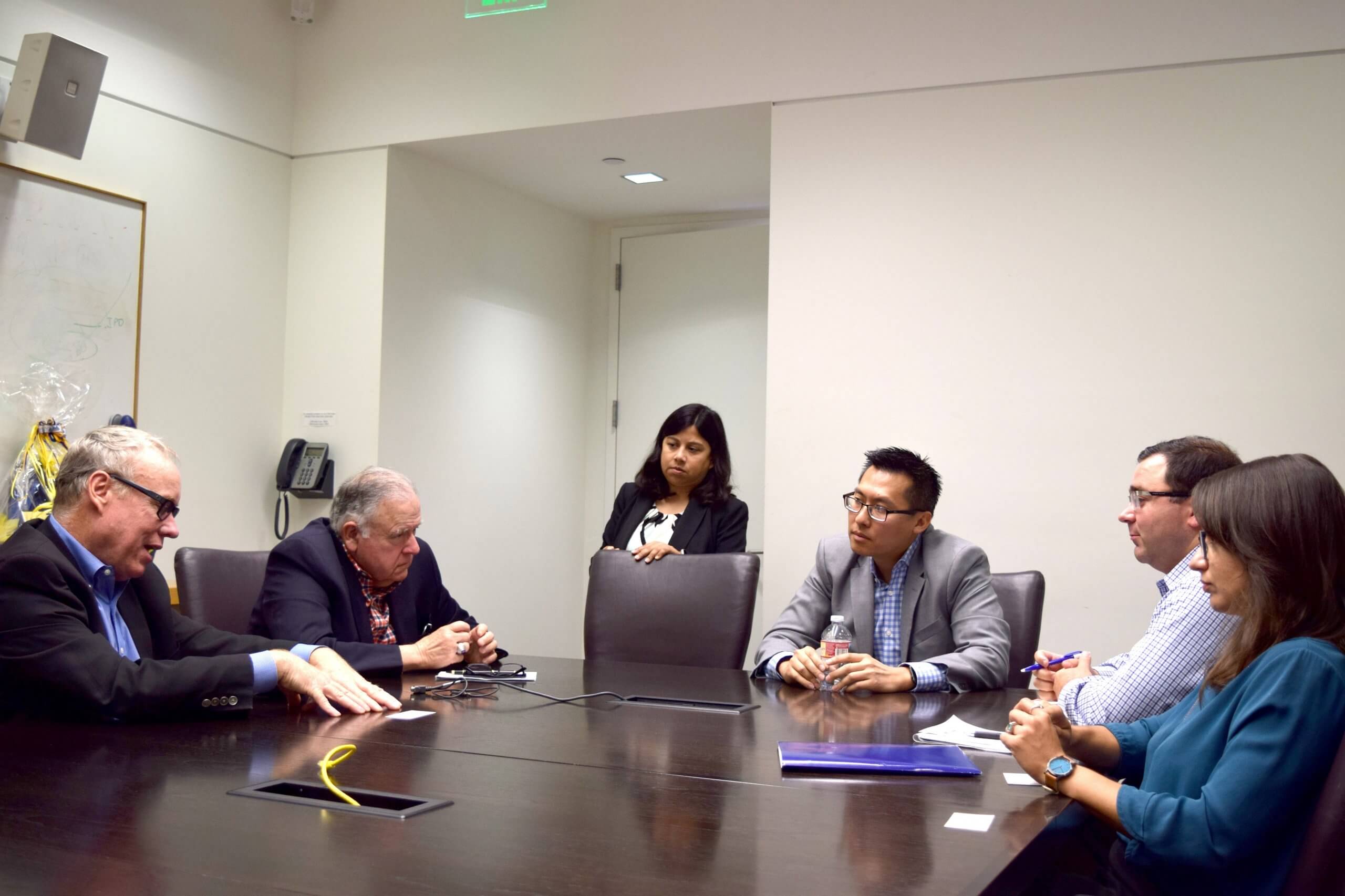
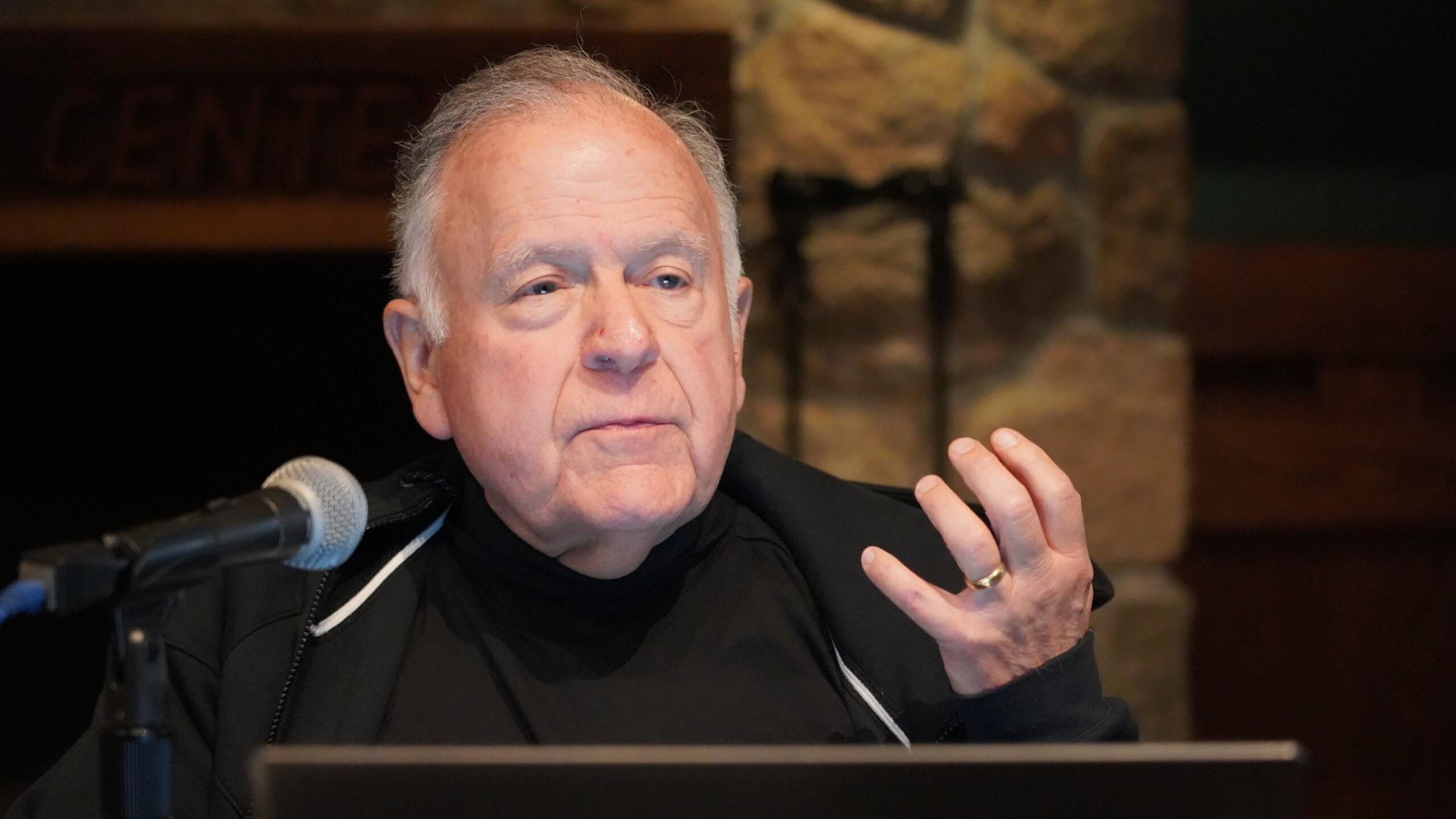
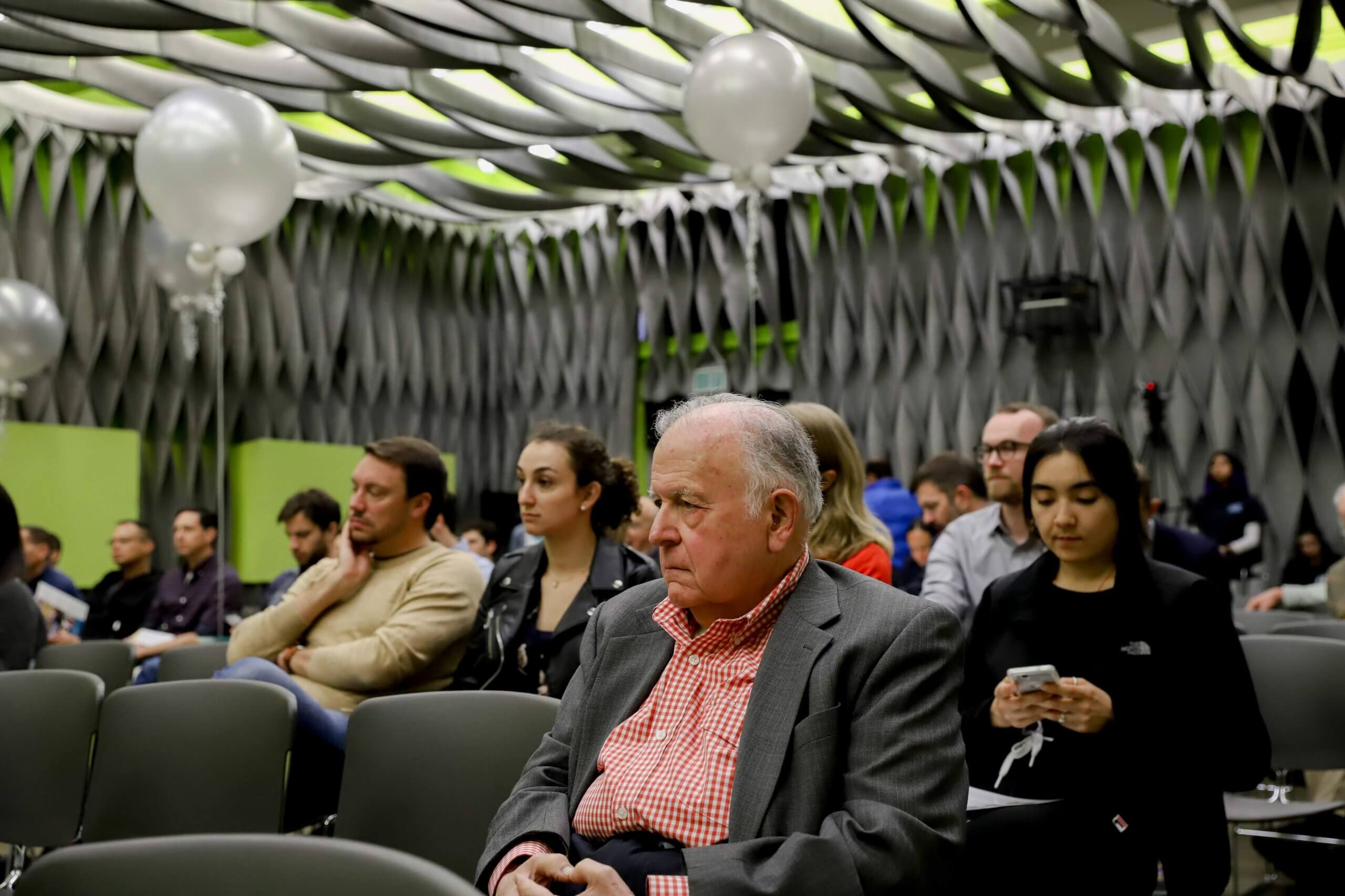
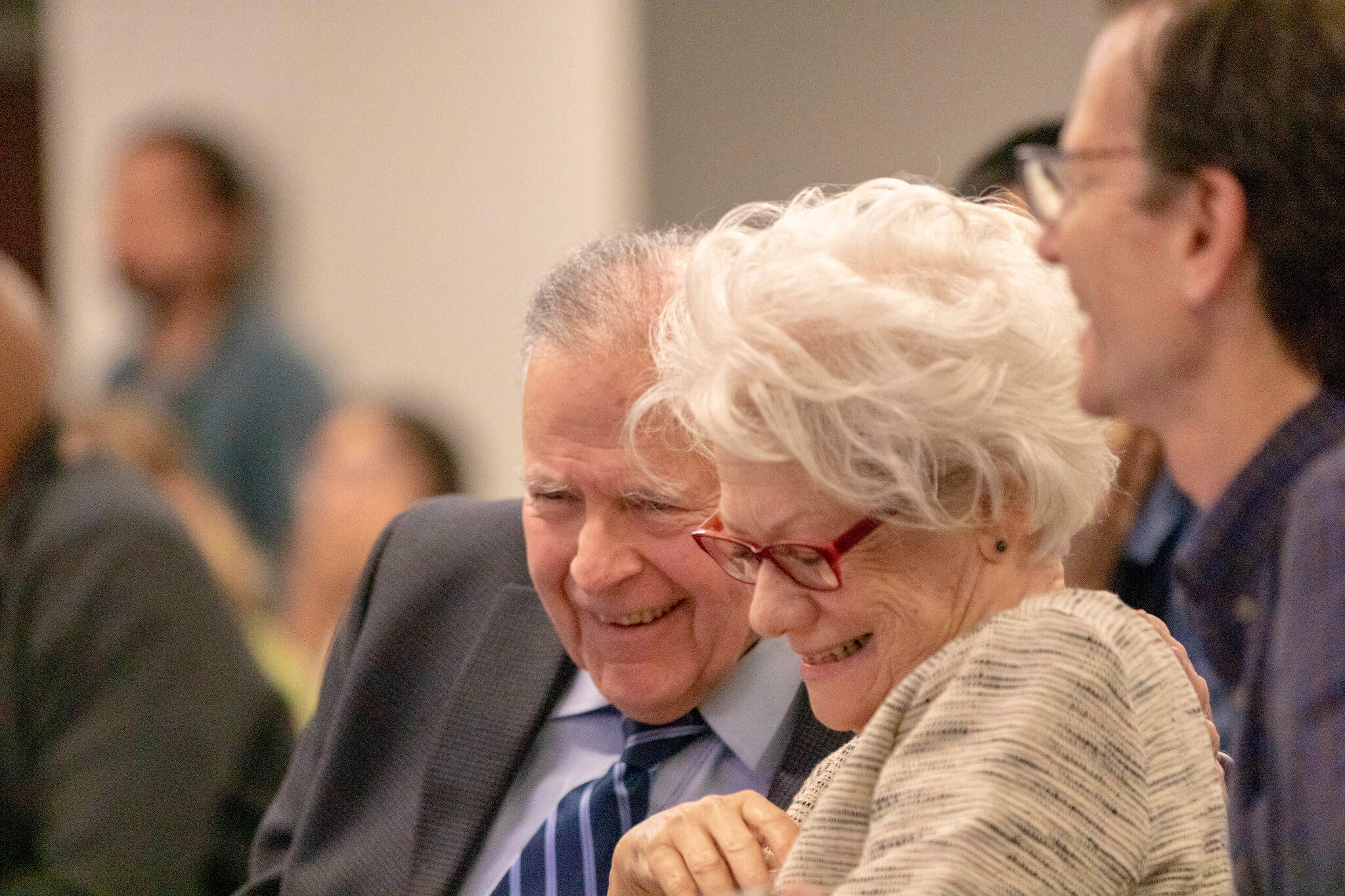
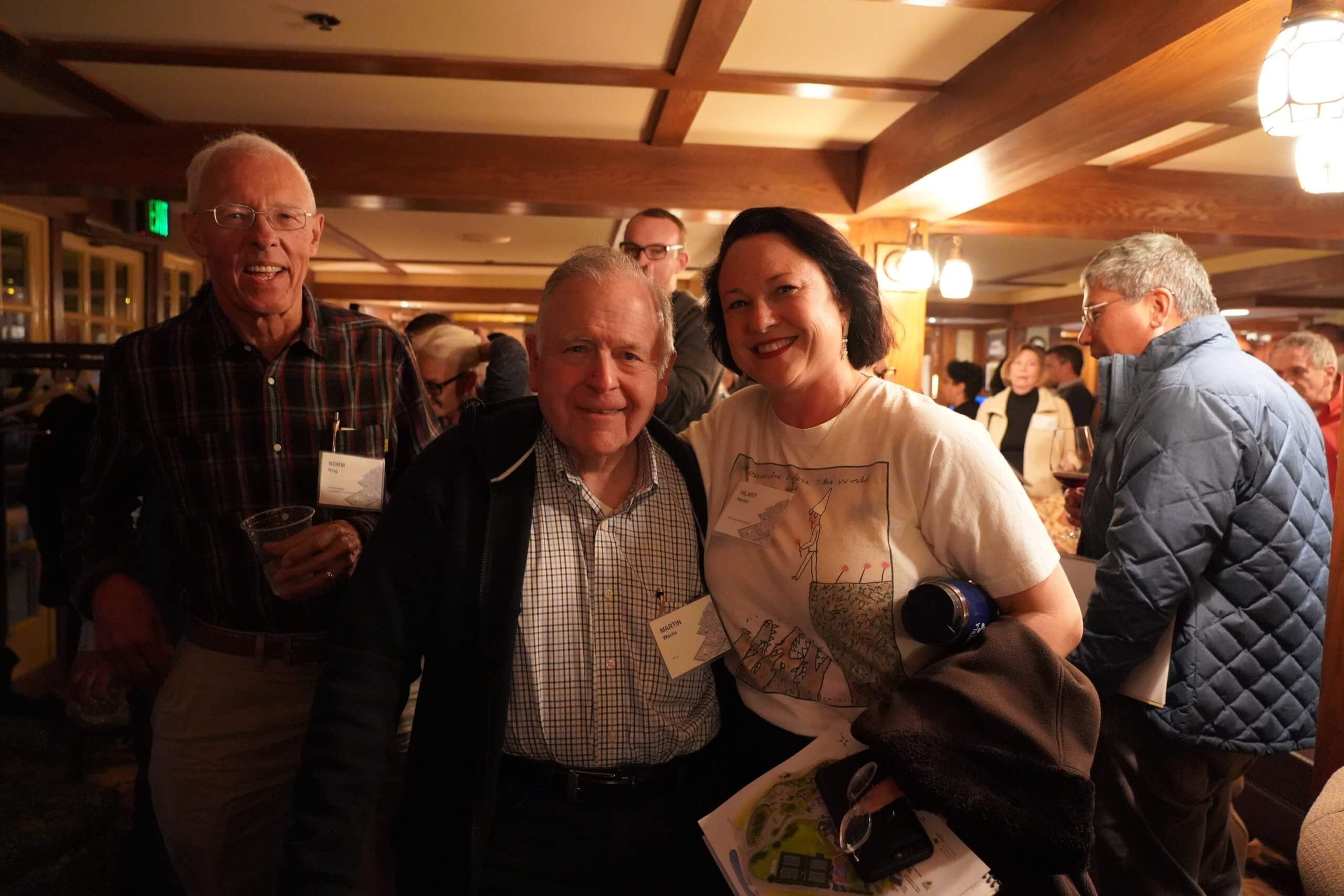
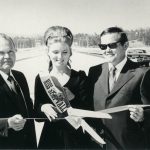



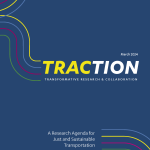
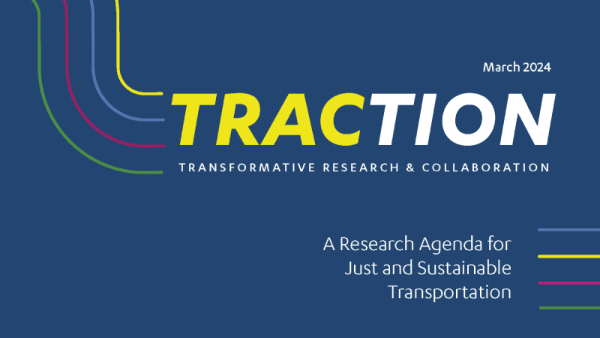
Marty is among the most generous souls I have had the pleasure to meet and learn from. His welcoming spirit, advice, and willingness to share his time and expertise were of such help in my studies and my career in transportation research. He and Helen hosted me and other students for dinner at the beginning of every year and made us feel at home. My deepest condolences to Helen and the whole family. May his memory be a blessing.
Marty was one of the first and last faces I saw during my time as a student at Luskin. I sat in on one of his Megaprojects classes during a Prospective Student Orientation, and then, two years later, delivered my final project as a second-year MPP student to him in person, on the topic of congestion pricing in Stockholm.
I was fortunate enough to take two of his courses and can say unequivocally that he was one of my favorite professors. His knowledge of transportation finance, economics and policy is broad, but he always presented it in a way that made you feel like he was looking at the topics anew. He answered students’ many questions (mostly mine, haha) in an unflustered, magnanimous fashion. He made a point to admit when he felt he did not have expertise on a particular issue and then come prepared during the next class to answer the question. He was an extremely dedicated and thoughtful teacher.
After the Prospective Student Orientation I wrote him a thank-you email; his reply: “Thanks for coming to class and for your nice note. I hope you decide to come to UCLA.”
I am so very glad I chose this school, to have learned so much from Marty, and to be able to apply those learnings to my job today. (I am, in fact, working on a congestion pricing project right now!).
Helen and family — please know how much of a difference Marty has made in the lives of Luskin students. He will be remembered fondly.
I was so saddened to hear the news of Marty’s passing earlier this week. In reading through the comments left by others, it is abundantly clear the positive impact he had on so many, whether through a long and accomplished relationship or through periodically crossing paths at conferences and events. I was lucky enough to benefit from Marty’s mentorship while at UCLA, as a professor and advisor. He leaves behind an enormous void in our field and community. My deepest sympathies to Helen and to all who knew him. May his memory be a blessing.
I was deeply saddened to learn of Marty’s passing. I have known Marty for many years and worked with him fairly regularly through my role with the Mineta Transportation Institute where he was one of our Research Associates. Marty was a true giant in our field and I am honored to have known him. He was always available to provide advice and I know that my own work in transportation finance is better because of him. He will be missed by so many.
I have written about Marty before, supporting his nomination for this or that award, always well deserved. I was honored to do so, and my perspective was one of a non-academic who got to know Marty through is work outside of the university. But from the testimonies I have heard—from the several generations of students Marty taught, advised, and mentored—his former students view with him with a special reverence. As I write this, those students and the countless others whose lives were touched by Marty are at once grieving and celebrating a life well lived.
In my case, I got to know Marty largely through the Transportation Research Board (TRB) where he was an active participate for over 50 years, contributing his time generously in almost every capacity that TRB has to offer. He served on and chaired standing technical committees, participated on cooperative research program committees, served on and chaired the Executive Committee, and served on and chaired special consensus studies. It is in that latter role—which as a former director of special studies at TRB, I view as the most challenging—where you could see Marty’s full range of talents on display. Among those talents that led to his professional success, I’d include the following:
• First and foremost, Marty was a superb transportation planner and meticulous policy analyst who never let models and technique substitute for hard thinking. He got to know the terrain of whatever he was studying first and matched the analysis to the problems at hand. This quality fueled the demand for his advice to government, directly and via service on special appointed advisory bodies.
• Marty brought to his work a strong sense of social justice and clear notion of ethics in planning. In a nicely transcribed oral history housed at the Rutgers’ Voorhees Transportation Center, Marty himself explains, better than I ever could, how his career intersected with social justice concerns and professional ethics at various points and the real world impacts his work has had. I recommend it highly (vtrc.rutgers.edu).
• He was skilled communicator—otherwise he would never have been such a success as a teacher, scholar, and policy analyst.
• Marty was excellent committee chair who knew how to lead without being over-bearing; someone who could really help a committee be the best that it could be. During my time I’ve watched a lot of people lead committees and Marty was one of the best.
• Marty is generous. He volunteered his time in so many ways to so many organizations that a complete listing would go on a lot longer than the six pages it takes to list his TRB assignments. As for awards/recognition, that list must be long as well. At TRB he received the William Carey Award for Distinguished Service, and two Pyke Johnson paper awards, the most recent occurring at the 2020 TRB Annual Meeting.
• Finally, Marty loved the work and the people. Fortunately for us he continued working right up to the end.
While professional success is important, it is not the most important thing in life. When our daughter moved to the LA sometime ago, Dianne and I started visiting Marty and Helen more often, and we could see what a wonderful, generous, family-oriented couple they were. It was clear that Marty’s private life was every bit as rich as his professional career. Between his private life and public career Marty touched many, many lives and will not be forgotten.
Bob Skinner
TRB Executive Director, 1994-2015
Marty Wachs was a wondrous human being. I was privileged to collaborate with him to raise philanthropic funds for research on transportation policy and policy issues in Israel. Lacking a background in either subject area, I had a million naive questions that Marty answered in his uniquely respectful and illuminating way.
I have also enjoyed a friendship with Helen and Marty, who once attended a party for which I had mistakenly hired an inappropriate and embarrasing entertainer. As I sank into my chair in horror during the show, Marty leaned forward to peer at me. I’ll always recall his amused grin in response to my predicament.
Losing Marty is devestating, but all of us who knew him will never lose his influence on our lives. He brought dignity and grace to his interactions with professional colleagues, his personal friends, and his cherished family. I send sincere sympathies to Helen and the family, with hope that many happy memories will bring comfort.
On behalf of the 63rd cohort of the Coro Fellowship in Public Affairs, I wanted to extend my gratitude to Professor Wachs for graciously meeting with a few Coro Public Affair fellows to share his expertise during our Transportation Focus Week. We had the privilege of witnessing first hand his level of influence and dedication to his work.
We thoroughly enjoyed his insight and learned a lot about crime in the transit system, potential measures to increase safety at transit stops, how making investments in the bus system compares with larger infrastructure projects during the pandemic, and the political challenges of reducing parking and expanding bus lanes. He even referenced us to some of his colleagues and materials which illustrated to me how passionate he was about his work. It was very clear that professor Wachs is extremely generous and invites all learners in.
We send peace and happiness to his family, friends and colleagues. Professor Wachs has made a significant impact to our lives. May his memory live on.
When I was admitted to Berkeley’s Civil Engineering-Transportation Engineering (TE) PhD program in Spring 2005, I was elated. The chance to earn my PhD in TE under Marty Wachs and be an engineer-planner was an absolute dream come true. So, I made an appointment with Marty during the Spring Open House to secure my dream research assistantship.
Yet before I met Marty, another TE professor made a point to note that I was the bottom of the admit pool as I lacked the perfect 800 on the GRE math that so many other applicants possessed. Deflated, I headed to meet Marty Wachs.
I sat down in Marty’s office with the big circular table and grand windows overlooking the Campanile. We talked about his research and teaching and my interests and plans. I told Marty that I wanted to be just like him — an engineer-planner who evaluates the transportation system with a sharp, critical, probing eye and writes beautiful prose to communicate new perspectives in the field — but that it didn’t seem like Berkeley was the right place for me, given what I had just learned. Marty chuckled as he does and informed me that perfect GRE scores are not how he picks his RAs; he liked my essay and valued my perspective, and should I decide to come to Berkeley he would like to have me as one of his PhD students.
Certainly, being Marty’s RA and PhD student meant I could support my graduate studies and attend Berkeley, but it was so much bigger than that. In that moment Marty taught me that students are so much more than their numbers — a lesson I never forget every spring when I now do admissions for my own program. Marty also taught me that one doesn’t have to be liked or accepted by all others in the field to have a great career, a lesson that continues to come in handy navigating my own career in academia. In that moment, by valuing what I brought to the program as my whole self, Marty set me on a path of owning and being proud of my uniqueness as a scholar.
One semester into my time as Marty’s student at Berkeley, he decided to retire from Berkeley. Despite having been working together for mere months, Marty set on a path of ensuring I was supported for the entirety of my career. He asked his senior doctoral student, Gian-Claudia Sciara, to look after me — now we are friends and colleagues, and she still checks in on me to this day! In that first year Marty would call and email offering assistance with finding a new advisor and offering other advice. Sixteen years later, Marty has been a critical mentor to me, always my first call when I’m trying to navigate a challenging moment.
I owe so much of my career to the moment that Marty offered me a position in his group. His contribution to my life has been so profound; I’ll never be able to appropriately thank him. I try to honor his legacy daily by advising my students as whole people and by always being available to talk through the hard moments they face as students and beyond.
Thank you for everything, Marty. I love you and am so grateful to have had you in my life.
I never had the privilege of taking a course from Marty or working directly with him. Our paths did cross several times over the past four decades of a varied transportation career, and I was always impressed by his depth of knowledge and the depth of his caring for others, including me. Marty had the ability to see wholes when everyone else was only seeing parts.
These comments paint a portrait of Marty that underscore our great loss. On the other hand, they make clear that his work and his spirit will live on in the many lives he touched. May the lives we touch be enriched by what Marty gave us.
My career in transportation began with a conversation with Marty in 1983 in his office at UCLA. I didn’t know him at the time but a former student of Marty’s — a friend of mine — who knew I wanted to return to graduate school for transportation studies recommended I contact him to discuss possible universities to attend. I remember Marty freely and generously gave his time to me to help me decide the transportation graduate school that was a good fit for me. I remember he put in a plug for Northwestern, his alma mater. Several years later when I worked at the Institute of Transportation Studies (ITS) at UC Berkeley’s PATH Program, I was honored to be able to work with Marty on a project. And several years later our path’s crossed again when he became Director of UC Berkeley’s ITS. I always looked forward to running into him at the Transportation Research Board’s Annual Meeting each January in D.C. and catching up on what’s been happening. May his memory be for a blessing to all who knew and loved him.